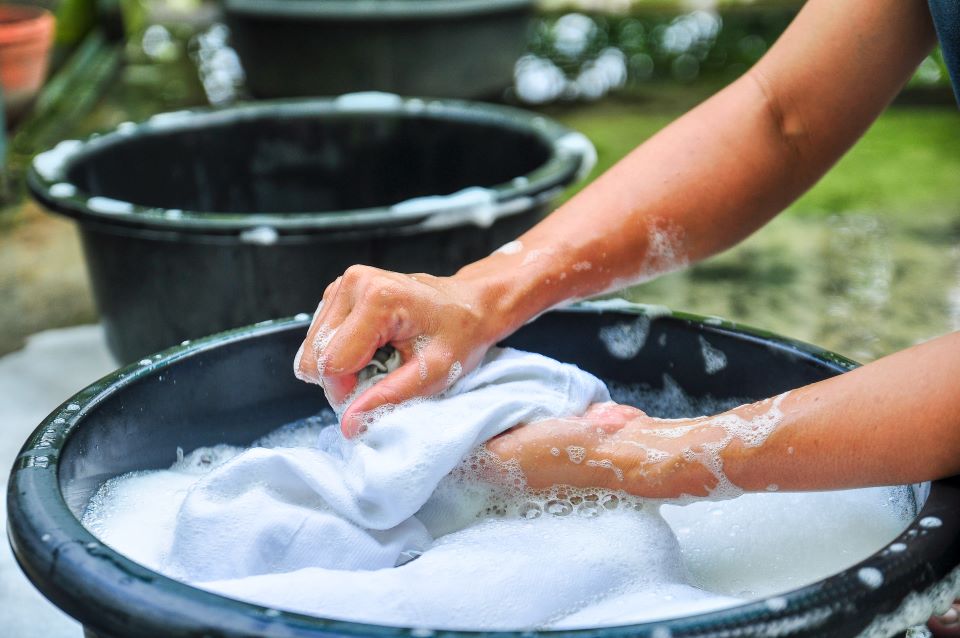Doing laundry by hand sheds just as many microfibres as machine washing, new research has found

- Doing laundry by hand sheds just as many microfibres as machine washing, new research has found;
- More than 50% of the global population have no regular access to electric washing machines;
- Researchers are calling for changes in the way textiles and clothes are designed and manufactured to tackle the microfibre pollution problem.
Changes in how textiles and clothes are designed, traded and manufactured are needed on a global scale to tackle microfibre pollution in rivers and oceans, researchers have said.
Between 6,500 and 87,000 tonnes of microfibres are shed during domestic laundering every year in the UK. Many of these miniscule fibres end up in rivers and oceans, where they can have devastating consequences for aquatic animals and environments.
Environmental advocacy groups in the UK, EU and North America are currently campaigning for legislation to mandate microfibre-catching filters for all new washing machines.
But new research has shown that washing clothing by hand can shed just as many microfibres as laundry washed in a machine. And with more than 50% of the global population not having regular access to an electric washing machine, most laundry is done 'off-the-grid'. Here, wastewater from hand laundering can flow directly into rivers, bypassing wastewater treatment facilities even where they are available.
Professor Deirdre McKay, Professor of Sustainable Development at Keele University, said: "Resolving the microfibre pollution problem needs more than just installing washing machine filters. It requires changes in how textiles are designed, manufactured and traded on a global scale.
"People who hand wash clothing cannot easily change their practices. So, we need a complete rethink, not of the ways we launder our clothes, but of how our clothing is made.
"The power to make this change this lies with those who design and manufacture the textiles driving global microfibre pollution."
Researchers from Keele University worked in a wider team of colleagues co-led by Dr Tom Stanton at Loughborough University with contributions from the Philippines, Australia and six other universities in the UK. Their findings are published in the Journal of Cleaner Production.
The Keele team held a workshop and observed hand laundering practices in the Cagayan River Valley in the northern Philippines and then replicated the same techniques in a laboratory. The experiments measured the fibre shed from both pre-washed and brand-new 100% polyester trousers bought from a UK high street store that closely resembled the polyester clothing found in the markets in the Philippines.
They found that hand washing the trousers using a plastic scrub brush led to fibre shedding levels of between 6,499 and 64,000 individual fibres per garment, comparable to the levels reported for machine washing. The results show hand laundry is not necessarily gentler on our clothes or on the environment.
Most read
- Head of Keele's Language Centre receives British Empire Medal in New Year's Honours
- Keele and NHS Trust researchers develop groundbreaking blood test for lung cancer
- Swearing frees the mind to “go for it”, Keele study finds
- Keele psychology expert advises U.S. police on protest management
- Keele joins new worldwide canal-city university network to tackle global challenges
Contact us
Andy Cain,
Media Relations Manager
+44 1782 733857
Abby Swift,
Senior Communications Officer
+44 1782 734925
Adam Blakeman,
Press Officer
+44 7775 033274
Ashleigh Williams,
Senior Internal Communications Officer
Strategic Communications and Brand news@keele.ac.uk.


